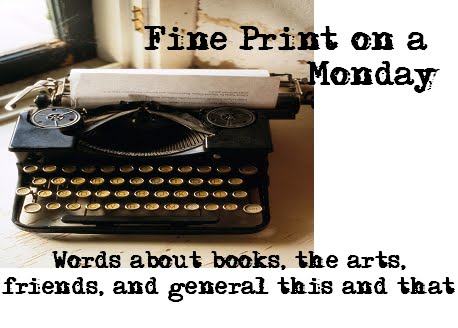
My goal to fill in some reading gaps led me to Gustave Flaubert's controversial novel, Madam Bovary. The story is quite simple, really, and not uncommon. Emma Bovary longs for romance and takes what she believes is a shortcut to living her dreams by marrying the first man who offers to rescue her from her mundane, rural life with her father. Although her husband was well intended, and blindly in love with her, Emma soon tires of her place as a doctor's wife in provincial, 19th century France. Her desire for fine things escalates, as does her roantic dream to escape from the boredom and emptiness of her life. What has she to fill her days but cooking, picking out drapery and wall-coverings, and looking nice for her husband? What adventerous option does she have but adultery?!
Well, this book caused quite a stir, and Flaubert was put on trial for challenging the mores of the time. Although the author's voice is heard throughout the novel, chastising and ridiculing the protagonist, (bordering on mysogeny) public sentiment swelled against Flaubert, with people fearing that Emma's freewheeling lifestyle would lead to the decay of public decency. Flaubert's defense was that it was the very decline of morals that provided him the material for the book in the first place!
Jeepers! If that citizenry felt that this book was morally bankrupt, I'd like to hear their opinions on how our book, movie, and TV offerings we have evolved since then. That issue aside, the novel does pose some questions worth discussing. Why is it that we are so willing to embrace Emma and even forgive her? Who decides what actions are immoral, and are discreet immoral actions more forgivable than public actions? I think of poor Hester in The Scarlet Letter, made to publicly display her sin, while her co-offender was allowed to suffer his indignity in private - unacknowledged. Was Hester's sin greater than his? Are all indiscretions equal, or must we consider the reasons and the contexts? My guess would be that most of us would be situational moralists when it comes to our own lives, and somewhat more absolute when considering the lives of others.
Have you read Little Children, by Tom Perotta? Mary Ann's suburban situation is similar to Emma's. Her husband is a kook; she is uber-intellectual, and can't connect with any of the other well-outfitted moms. MaryAnn's angst draws her to the very handsome and obedient, Todd, who happily moves through life resisting the responsibilities of adulthood. What happens? Well, there's an affair, of course. There is no way the relationship will last, but for brief time, Mary Ann is happy, and I am happy for her. I'm not condoning their actions, but I think everyone should be happy. I just wish she could have found it in a less unconventional way.
This dicey subject came up again last weekend in the movie Waitress. Now, this is fun flick. The director, Adreinne Shelly, co-starred in the movie with Keri Russel, and was tragically murdered shortly before its release at The Sundance Film Festival. She effectively combines reality with daydream. There's a lot of inner conflict which we hear through the main character's self-talk. Jenna's life, I believe, is more complex than Emma Bovary's. She has an abusive husband, and can see no way to escape - unless you consider that she is the best pie baker in the county. Really, that's not much to go on when there is baby on the way. Enter a handsome, young doctor and OOPS!...there you have it, another dalliance! Jenna struggles with all aspects of the relationship, and although initial reactions to her may be that she is weak and silly, she turn out to be inteligent, courageous and strong.
All four stories reinforce that old idea of not throwing stones until you've walked a mile in someone else's shoes...or mixed enough metaphors to make the point. And, for those of us quick to judge, let me remind you of the lessons learned in that musical morality tune "Harper Valley PTA." The enticing, mini-skirted Mrs. Johnson sure stopped the good old boys on the school boad dead in their tracks, didn't she?
By the way, Flaubert was acquitted!

Here's a wonderful snow sculpture on the side of our store courtesy of Mother Nature. Today, I think the cold will leave me lonely, although the phone has been ringing constantly, and by 10:02, I alrady had thress customers. Tis the season, I guess! Stay warm, today!
